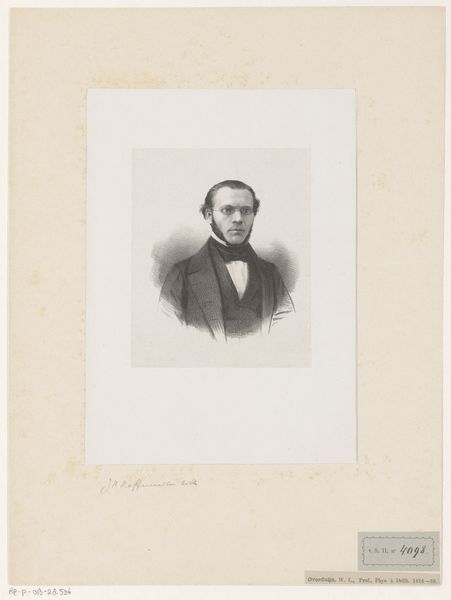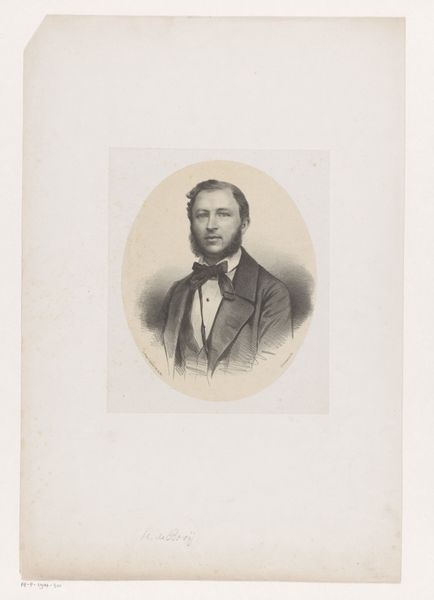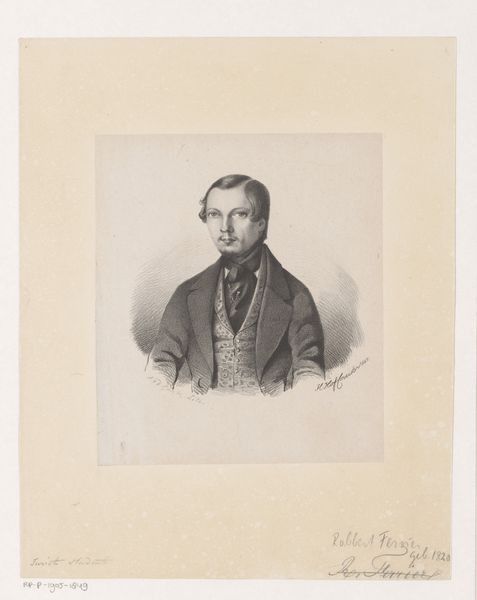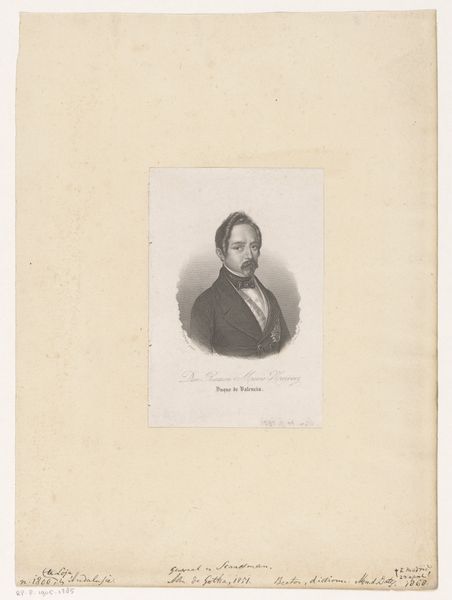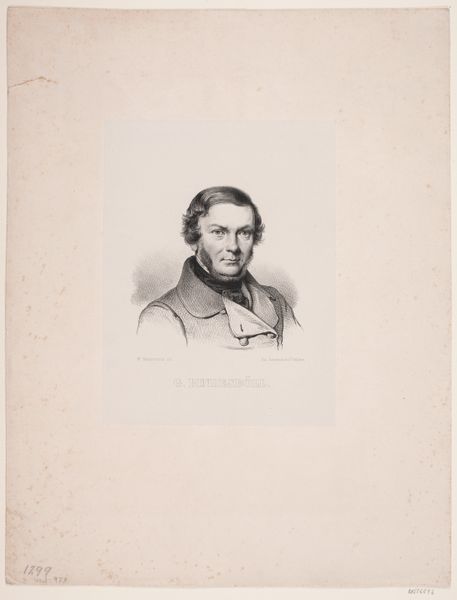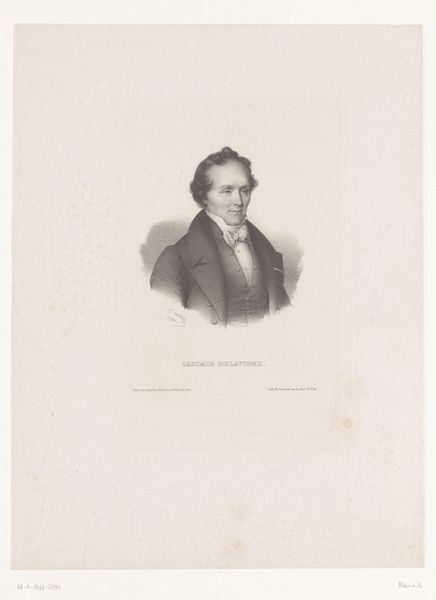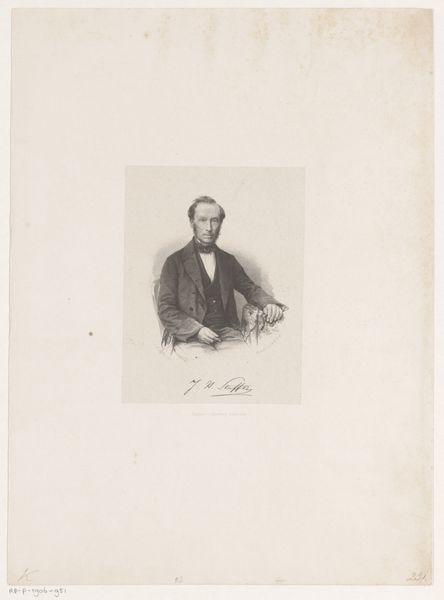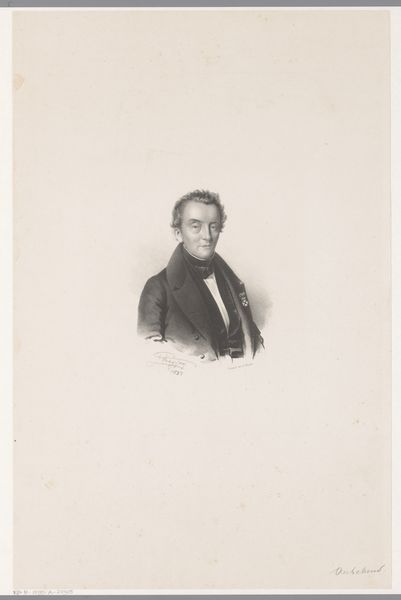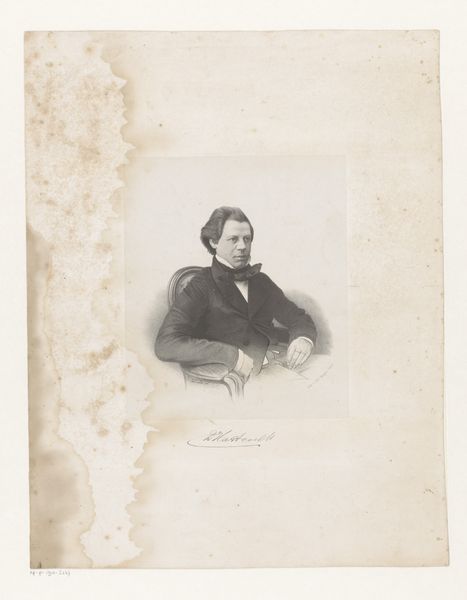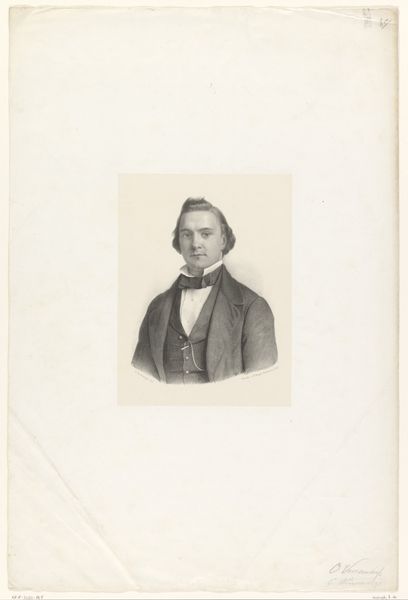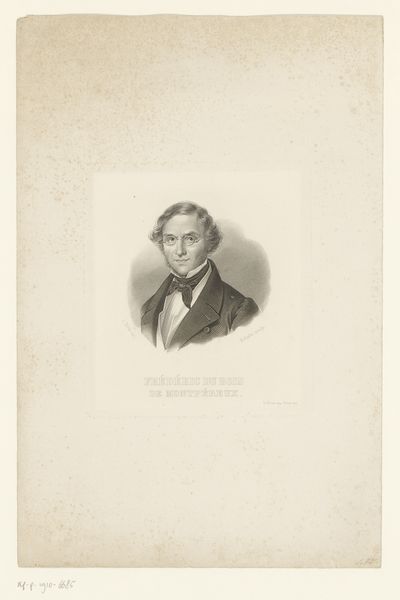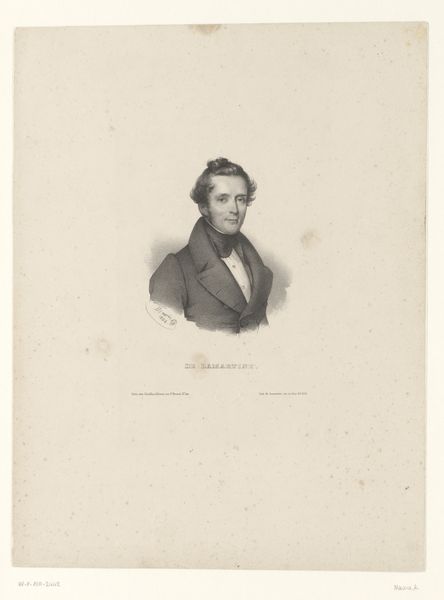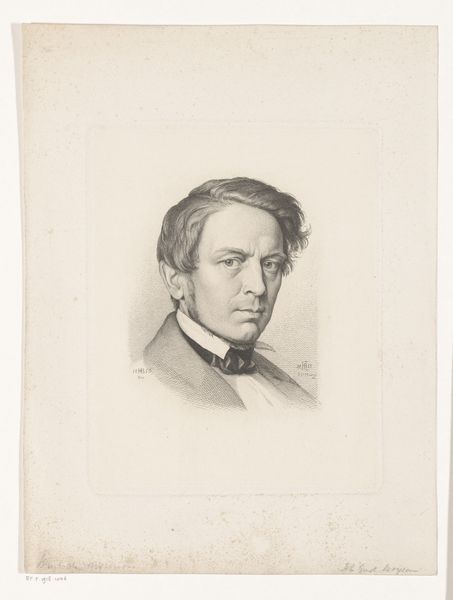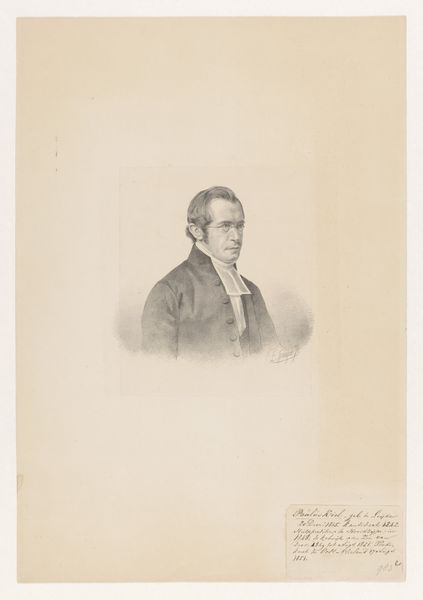
drawing, pencil
#
portrait
#
pencil drawn
#
drawing
#
pencil sketch
#
pencil drawing
#
romanticism
#
pencil
#
academic-art
Dimensions: height 363 mm, width 274 mm
Copyright: Rijks Museum: Open Domain
Editor: This is "Portrait of an Unknown Man," dating somewhere between 1822 and 1865, by Thomas Teekes Oostenga, executed in pencil. It's a very delicate drawing, quite romantic. What strikes you most about this work? Curator: Well, given that it's a portrait of an unknown man created during the rise of industrialization, I find myself thinking about the materials. Oostenga uses graphite, commonly known as pencil, which was becoming more readily available and affordable during this period due to advancements in mining and manufacturing. Does the increasing availability of the material alter the style in which the artist creates portraits, enabling finer details and thus a kind of "middle-class romanticism?" Editor: So you’re saying the availability of the pencil itself is key to understanding the style? That's a different way to think about portraiture. Curator: Absolutely. Also, consider the social context. The production and distribution of such a work relies on paper manufacturing, trade networks for pigments, and the individual artist's labor. Pencil sketches were often used in workshops when learning new techniques, and even used as patterns in manufacturies such as fabric making. This intersects both 'high art' with practical use. What kind of skill and labor went into this "pencil drawing" versus other methods of art creation at the time, and can the distinction always be clear? Editor: I never really thought about how the humble pencil had its own story to tell, but framing art through the lens of production and materials gives so much depth. Curator: It makes you question those ingrained assumptions about what art "is," doesn't it? Editor: It certainly does. Thanks! Curator: My pleasure.
Comments
No comments
Be the first to comment and join the conversation on the ultimate creative platform.
